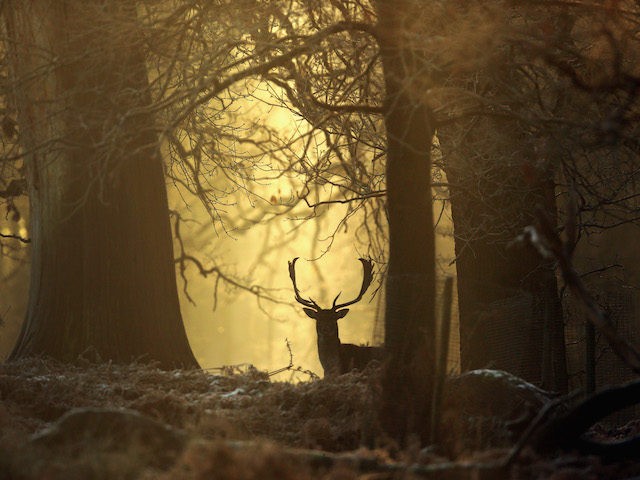Forests so large they could cover all of France have regenerated and thrived since 2000 and benefit the environment by absorbing one billion tons of carbon dioxide — a rate greater than the annual emissions from the United States.
The Thomson Reuters Foundation reported on the analysis conducted by researchers with the World Wide Fund for Nature (WWF) released on Tuesday:
The research looked at forests that have grown back spontaneously or with little human help, such as planting native trees or fencing off land to reduce grazing.
Scientists say that protecting and regenerating forests is a better climate change solution than planting trees, because existing forests absorb more planet warming gasses while also safeguarding wildlife and biodiversity.
The study found the Atlantic Forest in Brazil regained an estimated 4.2 million hectares – an area roughly the size of the Netherlands – since 2000, something it described as a success story. Over the same period, 1.2 million hectares of boreal forests were regenerated in northern Mongolia, with other reforestation hotspots including central Africa and Canada, it said.
But the environmentalists are still not satisfied and pushed back against the strategy of planting trees to fight so-called climate change.
“The data show the enormous potential of natural habitats to recover when given the chance to do so,” John Lotspeich, executive director of Trillion Trees, the coalition of environmental organizations behind the study, said. “But it isn’t an excuse for any of us to wait around for it to happen.”
“We’ve known for a long time that natural forest regeneration is often cheaper, richer in carbon, and better for biodiversity than actively planted forests,” William Baldwin-Cantello, director of nature-based solutions at WWF-UK, said.
“This research tells us where and why regeneration is happening, and how we can recreate those conditions elsewhere,” Baldwin-Cantello said.
“If we give forests the space … to regenerate at scale, and if we create that space, and we ensure that last into the future, then this is going to play a major role in avoiding climate change,” Baldwin-Cantello said.
“It doesn’t mean we don’t need to stop deforestation, we definitely do. It doesn’t mean we don’t need to reduce emissions,” Baldwin-Cantello said. “But we need all of these things combined. And we can do much more to capitalize on that regeneration than we currently are.”
“Still, the authors said such ‘encouraging signs’ could not be taken for granted, warning the world was still losing forests at a ‘terrifying rate,’ much faster than that of restoration,” Reuters reported.
Follow Penny Starr on Twitter or send news tips to pstarr@breitbart.com

COMMENTS
Please let us know if you're having issues with commenting.